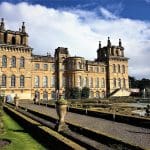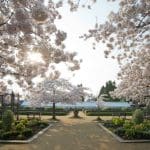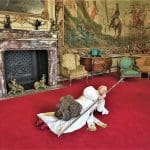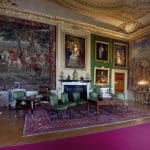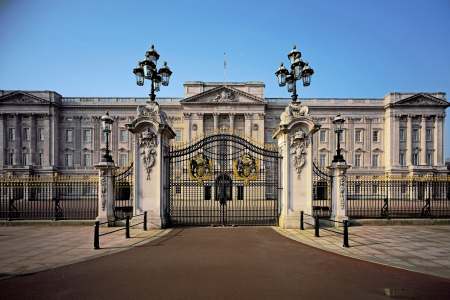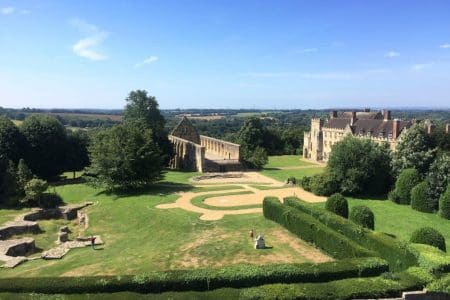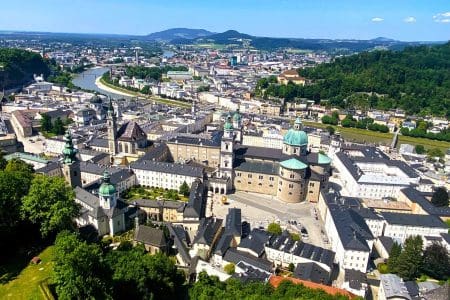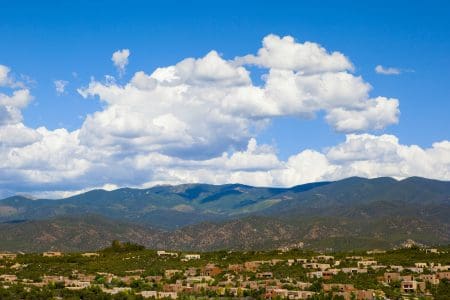Mark Bibby Jackson pays a visit to Blenheim Palace in Oxfordshire, a stately home that is steeped in history associated with the country’s most famous son.
I first visited Blenheim Palace in my twenties. History had always been a passion of mine at school although I read English at university, and as such I had learned about the Churchill family, of father Randolph and, of course, his more famous son Winston and their home at Blenheim.
On that occasion, I had only visited the grounds, marvelling at Vanburgh’s Grand Bridge and wandering around some of the 2,000 acres of Capability Brown’s landscaped parkland. This time, I entered the building where Winston Churchill was born in 1874, for the first time.
Britain’s greatest son spent most of his childhood in the palatial home, and after his state funeral in 1965, he was buried next to his parents in the cemetery of St Martin’s Church in Bladon to the southwest of the Blenheim Estate.
Blenheim Palace History
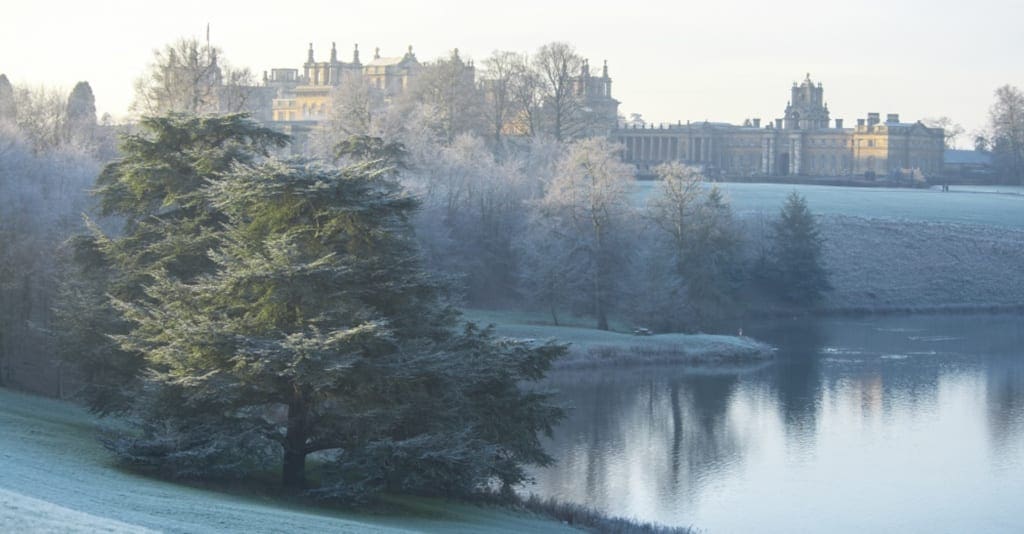
The site has been the property of the Dukes of Marlborough since 1704, with the 12th Duke of Marlborough currently living at Blenheim Palace.
Designed in the English Baroque style of the early 18th century, Blenheim was built between 1705 and 1722. Queen Anne intended it as a gift to John Churchill, the First Duke of Marlborough, for his deeds at the Battle of Blenheim (or Blindheim) in the War of the Spanish Succession. The 41-metre-high Column of Victory that overlooks Brown’s parkland is dedicated to the Duke.
However, royal support for the scheme was cancelled in 1712, apparently following a falling out between the Queen and the Duke’s wife. Churchill fled to the Continent, only returning the day after Queen Anne’s death on 1 August 1714.
Sir John Vanburgh, who had designed Castle Howard in Yorkshire, was initially appointed architect for the project – although the Duchess preferred Sir Christopher Wren. However, after spiralling costs and a dispute as to whether the Crown or Churchill should foot the bill, Vanburgh was removed from the project. Eventually, his assistant Nicholas Hawksmoor was recalled to complete the design in 1723. It is not known when it was eventually completed, but the Duchess of Marlborough was still complaining about costs as late as 1735.
Marlborough Tapestries
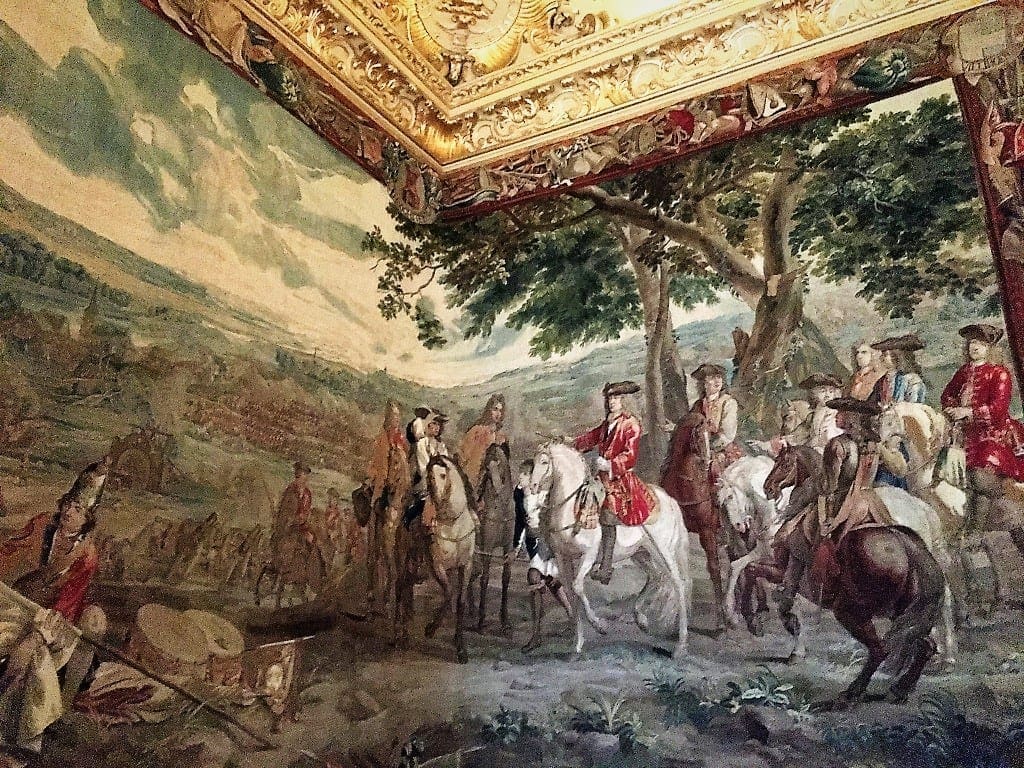
Although not without its critics, and the English Baroque style was short lived, the building stands as one of the most spectacular stately homes in the country. In 1987 it was designated a World Heritage Site.
The Grand Court is truly spectacular, inviting you to linger, enjoy the architecture and wonderful situation. From here you enter the palace itself collecting an audio tour which will guide you around both the building’s many state rooms and the Untold Story Churchill Exhibition.
For me, perhaps influenced by my recent trip around some Loire Valley Chateaux and the spectacular tapestries I discovered there, I found the Marlborough tapestries of greatest interest. They are also of historical interest, depicting the first Duke’s success at Blenheim.
The Long Library, designed by Hawksmoor, is equally spectacular. Reputed to be the second longest room in England and designed as a library, it held 10,000 books including first editions by Dickens and Winston Churchill. During the First World War it was used as a hospital.
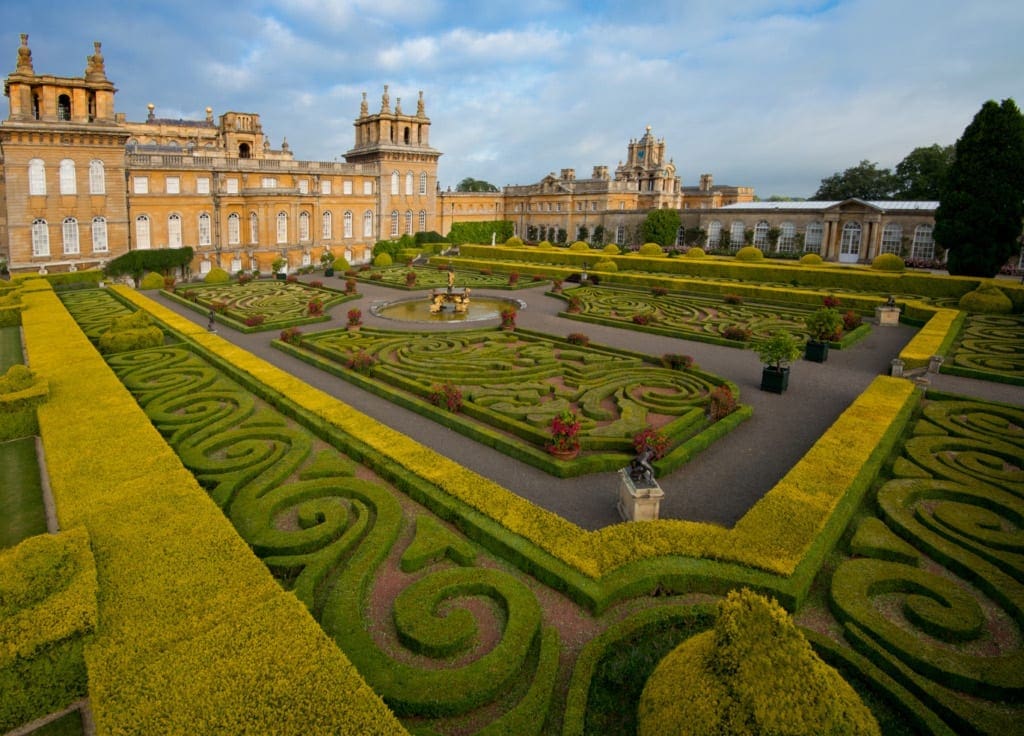
Blenheim Palace Grounds
As spectacular as the Palace is, in many ways it pales when compared with Capability Brown’s wonderful grounds. Randolph Churchill described the panorama across the lake of the Vanburgh-designed Grand Bridge as the “finest view in England”.
Although Winston’s father might be accused of bias, he does have a case. Unfortunately time has not been a friend to the Queen Pool, Great Lake and Grand Bridge, and a major £12 million engineering project is currently under way to help preserve them.
These works did not detract from my walk around the grounds, which took in the Temple of Diana, where Winston proposed to Clementine in 1908 during a downpour, the Churchill Memorial Gardens and the Grand Cascade and Pump House, before returning to the Formal Gardens and Water Terraces.
My leisurely stroll took around 40 minutes, but there are much longer walks you can take, even as far as the neighbouring town of Woodstock, with the grounds particularly striking both in autumn and winter.
Blenheim Palace Events
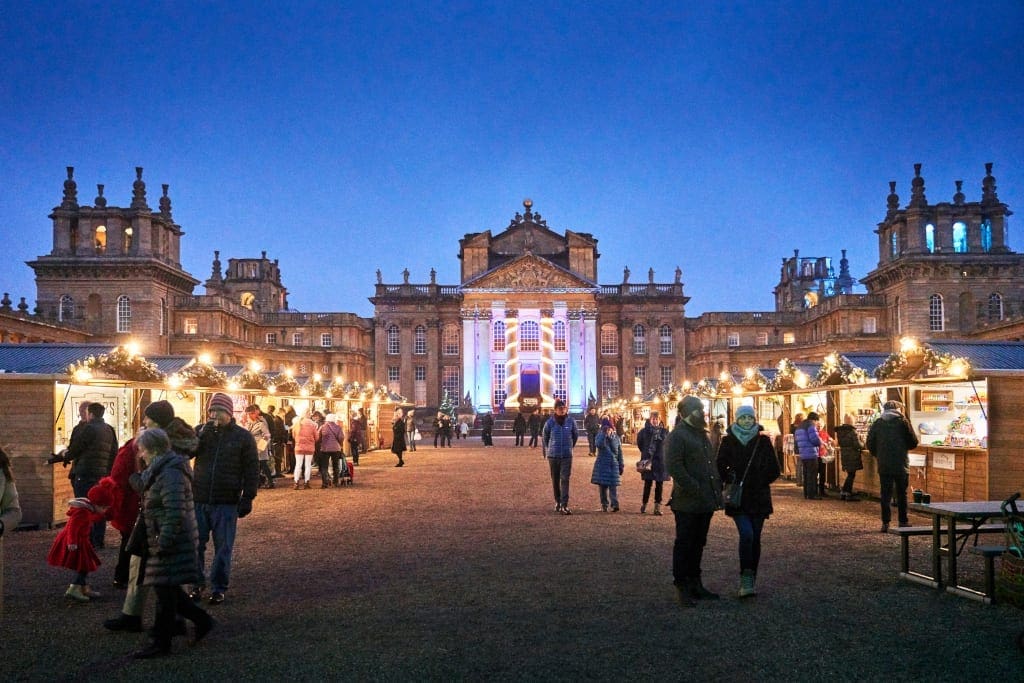
Indeed winter is a great time to visit, especially for the Blenheim Palace Christmas Market held in the Great Court from 22 November to 15 December. At this time, the Blenheim Palace Christmas lights are turned on, as the house and grounds become a Winter Wonderland capturing the magic of Alice with an illuminated trail through festive gardens.
Another popular event is the annual Blenheim Palace flower show, which will be held from 26 to 28 June in 2020. And with wonderful blooms in spring, it truly can be said that Blenheim is a palace for all seasons.
Blenheim Palace Afternoon Tea
If you are feeling somewhat peckish on your tour, you can always pop into the Orangery Restaurant for afternoon tea. The restaurant serves both a champagne afternoon tea and a non-alcoholic one from 2pm to 5pm (last order 4.30pm). Alternatively, you can enjoy a two-course or three-course lunch there.
Where is Blenheim Palace?
Blenheim Palace lies next to the village of Woodstock in Oxfordshire, 90 minutes from London. You can take the train from London’s Paddington or Marylebone stations to Oxford or Oxford Parkway on Chiltern Railways. The S3 bus runs every half an hour from Oxford train station to the Palace gates.
Blenheim Palace Photo Gallery
Blenheim Palace tickets
To purchase tickets for Blenheim Palace including a Blenheim Palace annual pass, click here.
Blenheim Palace Opening Times
The park is open from 9am to 6pm, with Blenheim Palace itself open from 10.30am to 5.30pm (last entry at 4.45pm). The Orangery Restaurant is open from 10am to 5pm, although food is only served from 12pm and last orders are at 4.30pm.

